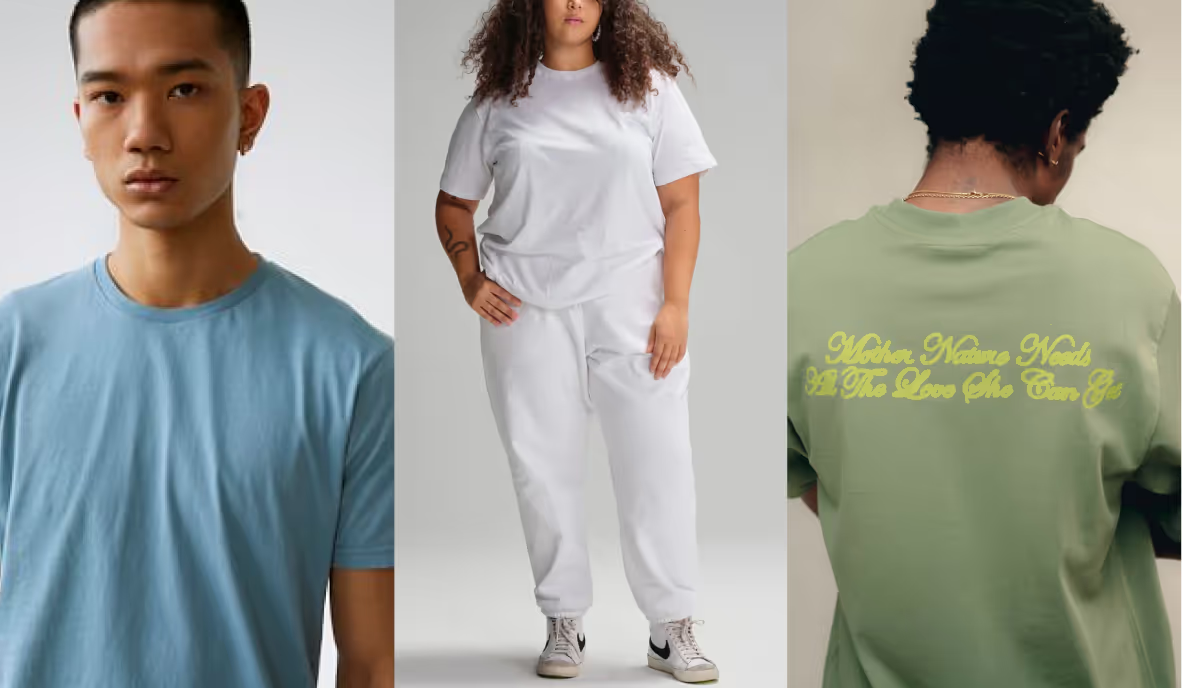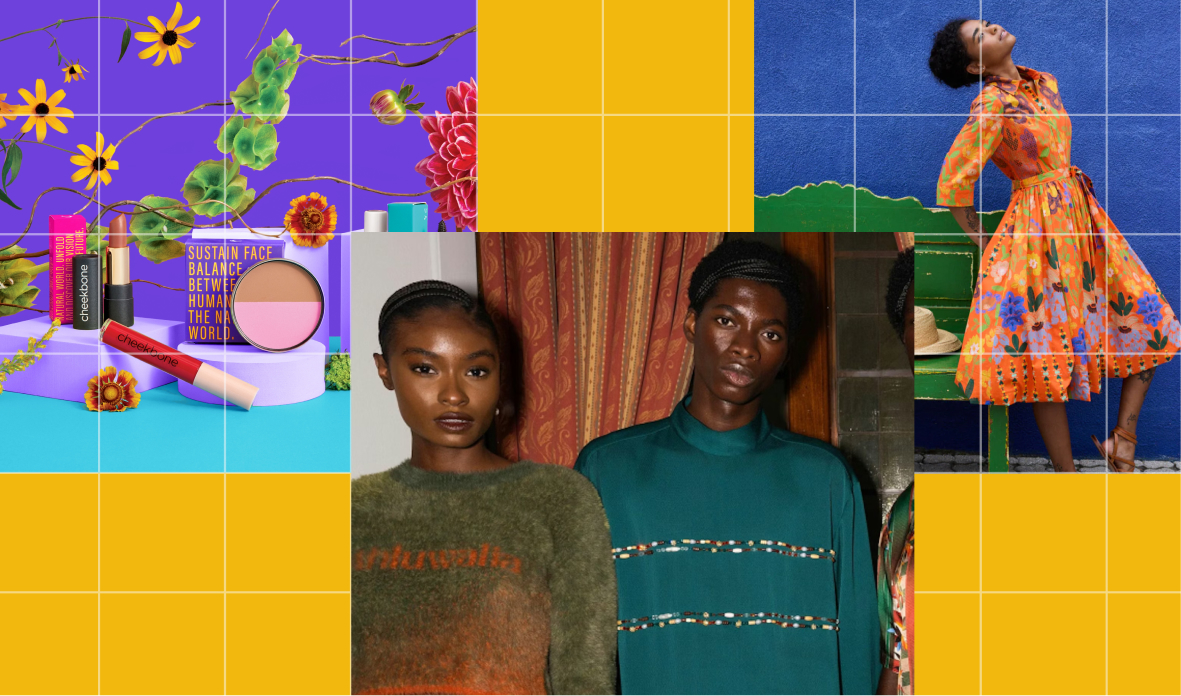8 Sustainable T-Shirts Under $40

Join the community





T-shirts are a wardrobe staple. We can pair them with jeans or wear them under slip dresses. Some brands are making t-shirts more sustainable by producing them in Fairtrade certified factories and using sustainable materials such as organic cotton and TENCEL™ Lyocell.
But this often increases the price of these t-shirts, especially when compared to fast fashion brands.
To help you find sustainable, affordable t-shirts, here are eight brands that offer t-shirts under $40:
Tentree
Tentree produces t-shirts using sustainable materials such as TENCEL™ Lyocell, organic cotton, and recycled fibers, all manufactured in Bluesign® certified facilities. The brand goes beyond eco-friendly materials by running a take-back program called Circularity, which repurposes and recycles old t-shirts. Tentree has also made significant progress in supply chain transparency, with 90% of its fibers traceable to their country of origin. For packaging, it uses recyclable paper twine instead of plastic bags, with tags and inserts made of FSC-certified paper. And, of course, it plants ten trees for every item purchased to help regenerate ecosystems.
CHNGE
CHNGE produces environmentally and socially responsible t-shirts using 100% GOTS certified organic cotton. It also runs a pre-order system for some t-shirts, which helps minimize waste and overproduction. Its commitment to sustainability extends to production processes as well, with 95% water recycling in dyeing, 80% renewable energy use in sewing facilities, and OEKO-TEX Standard 100 and GOTS-certified dyeing and printing processes. All the products are made in a Fairtrade factory, ensuring fair wages and safe working conditions.
MATE The Label
MATE the Label offers GOTS-Certified t-shirts made from organic cotton. It avoids harmful chemicals such as pesticides, BPA, PFAS, and formaldehyde. Climate Neutral and B Corp certifications demonstrate its commitment to environmentally friendly practices. The company emphasizes product longevity, encouraging customers to replace their t-shirts less frequently. It also provides a cost-per-wear breakdown, demonstrating the long-term value of its t-shirts.
Etiko
Etiko offers ethically made, Fairtrade t-shirts made from 100% organic cotton. The brand's t-shirts are free from toxic chemicals and dyes and are produced in a Fairtrade factory in India. The company emphasizes cruelty-free production, avoiding animal products in its apparel. It also regularly audits its farmers and manufacturers to maintain high ethical, environmental, and organic standards.
Lucy & Yak
Lucy & Yak sells vibrant and comfortable t-shirts designed in Britain and produced in India. The brand uses sustainable materials such as organic cotton, recycled wool, recycled polyester, linen, bamboo, hemp, and LENZING™ ECOVERO™. Its t-shirts are certified by the Global Recycled Standard and the Global Organic Textile Standard. Similar to Tentree and Everywhere Apparel, it also offers a trade-in service for recycling or reselling old items.
Colorful Standard
Colorful Standard makes t-shirts from 100% organic cotton, minimizing pesticide use and greenhouse gas emissions by up to 94%. Its t-shirts are designed to be durable, ensuring long-lasting wear. The brand uses FSC-certified paper and forest materials in its packaging, adhering to high environmental and social standards.
Pact Apparel
Pact Apparel produces t-shirts made with 100% GOTS-certified organic cotton in a Fairtrade Certified factory in India. The brand's use of certified organic cotton significantly reduces water consumption and pollution compared to conventional cotton. It also offers a Give Back Box® program, allowing customers to donate gently used clothes to nonprofits, promoting circular fashion and reducing waste.








.png)


